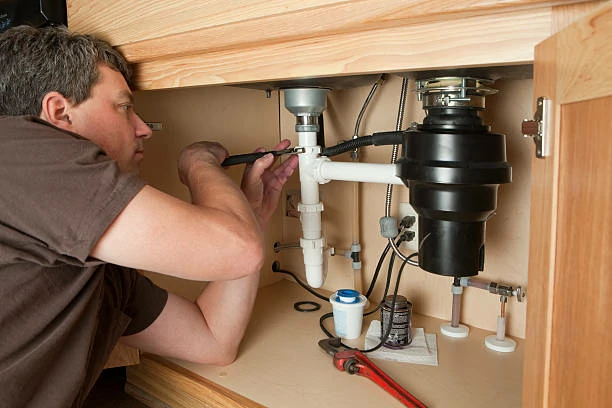Choosing the right PVC pipe for your home ensures a reliable and efficient plumbing system. PVC pipes come in various types, sizes, and specifications, each suitable for different applications. This guide covers key factors to consider when selecting PVC pipes for your home.
Understanding PVC Pipe Types
PVC pipes come in several types, each designed for specific uses. Knowing the differences helps you make an informed choice.
Schedule 40 PVC
Schedule 40 PVC is the most common type used in residential plumbing. It offers a balance of strength and flexibility, suitable for most home plumbing applications, including cold water distribution and drainage.
Schedule 80 PVC
Schedule 80 PVC is thicker and stronger than Schedule 40. It is used in high-pressure applications or where additional durability is required. It is ideal for areas prone to physical damage or high-stress environments.
CPVC
CPVC (Chlorinated Polyvinyl Chloride) can handle higher temperatures than standard PVC. It is suitable for hot water supply lines and applications involving higher temperatures. CPVC is often used in conjunction with PVC in home plumbing systems.
Determining the Pipe Size
Choosing the right size of PVC pipe is crucial for ensuring adequate water flow and pressure. Follow these steps to determine the appropriate size.
Measure Water Flow Requirements
Calculate the water flow requirements of your plumbing system. Consider the number of fixtures and appliances that will use water simultaneously.
Check Pipe Diameter
Choose a pipe diameter that meets your water flow requirements. Common residential sizes range from ½ inch to 2 inches. Larger diameters are suitable for main water lines, while smaller ones are used for individual fixtures.
Considering Temperature and Pressure Ratings
Temperature and pressure ratings are critical factors in selecting PVC pipes. Ensure the pipes can handle the expected conditions.
Temperature Ratings
Check the temperature ratings of the PVC pipes. Standard PVC pipes are suitable for cold water applications. For hot water applications, use CPVC pipes designed to handle higher temperatures.
Pressure Ratings
Consider the pressure ratings of the pipes. Higher-rated pipes are necessary for high-pressure applications. Ensure the pipes can withstand the water pressure in your plumbing system.
Evaluating Chemical Resistance
PVC pipes come in contact with various chemicals in household plumbing. Choose pipes with adequate chemical resistance.
Household Chemicals
Consider the chemicals commonly used in household cleaning and maintenance. Ensure the PVC pipes can resist these chemicals without degrading.
Environmental Factors
Evaluate the environmental factors that may affect the pipes. For example, pipes used in outdoor applications should resist UV radiation and harsh weather conditions.
Checking Local Building Codes
Local building codes dictate specific requirements for plumbing installations. Ensure your PVC pipes comply with these codes.
Compliance
Check local building codes for specifications on PVC pipe usage. Compliance ensures the safety and legality of your plumbing system.
Professional Advice
Consult a professional plumber or local building authority for guidance on code compliance. They can provide valuable insights and recommendations.
Assessing Durability and Longevity
Durability and longevity are important considerations for PVC pipes. Choose pipes designed for long-term use.
Material Quality
Select high-quality PVC pipes from reputable manufacturers. Quality pipes offer better durability and performance.
Warranty
Check if the manufacturer offers a warranty on the PVC pipes. A warranty indicates confidence in the product’s durability and longevity.
Installation and Maintenance Considerations
Consider the ease of installation and maintenance when choosing PVC pipes. Proper installation and regular maintenance ensure optimal performance.
Installation
Choose PVC pipes that are easy to install. Look for pipes with clear instructions and compatible fittings.
Maintenance
Consider the maintenance requirements of the pipes. Choose pipes that are easy to clean and repair. Regular maintenance extends the lifespan of your plumbing system.
Cost and Budget
Budget is a significant factor in choosing PVC pipes. Balance cost with quality and performance.
Price Comparison
Compare prices from different suppliers. Ensure you get the best value for your money without compromising on quality.
Long-Term Costs
Consider long-term costs, including maintenance and potential repairs. Investing in higher-quality pipes can save money in the long run.
Conclusion
Choosing the right PVC pipe for your home involves considering several factors, including type, size, temperature and pressure ratings, chemical resistance, local building codes, durability, installation, maintenance, and cost. By understanding these factors and making informed decisions, you can ensure a reliable, efficient, and long-lasting plumbing system for your home. Regular maintenance and adherence to local codes further enhance the performance and safety of your plumbing system.
Connect
IFAN is a Chinese manufacturer of plastic pipes, fittings and valves with 30 years of experience. If you are interest in IFAN copper fittings, copper valves, plastic pipes and fittings, please contact us. IFAN offers you a variety of standard pipes to meet your specific needs. Click below to learn more about IFAN’s wide range of affordable and cost-effective valve products and piping system related products.
We will reply your email or fax within 24 hours.
You can call us at any time if there is any question on our production.
For more information,pls visit our webside https://ifanpro.com/
Pls Mailto: [email protected]
Whatsapp: + 86 19857948982














Recent Comments